College of Science and Engineering Case Studies
The Transitions Survey was originally conducted in Autumn 2019 in order to gather data about the post-graduation jobs of recent PhD graduates. Participants were asked about their roles, the transition into their roles, and their advice for current PhDs to make the most of their PhD experience and prepare for post-PhD life and job searching. Those participating in the case studies included here also had the opportunity to update their responses in Summer 2020.
Below are the case studies from the College of Science and Engineering.
Peter Levens, School of Physics and Astronomy
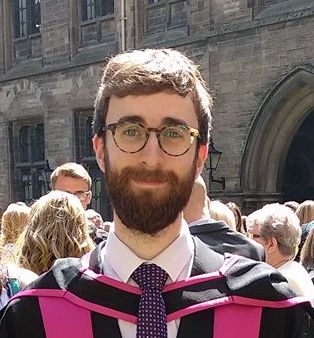
Employment
Research Fellowship at the Met Office as part of the Satellite Applications team.
12 months to secure position.
What does your role entail?
This is a position funded by a satellite company based in Germany, EUMETSAT. As an employee of the Met Office, I am a civil servant, therefore in the public sector.
What do you like and dislike about your current role?
I am relatively new to the role, so still learning. It is good to have a new challenge.
How did your doctorate lead to your current post?
Many of the techniques that I used and was familiarised with through my PhD are relevant to the field of numerical weather prediction at the Met Office, so I was employed on the background that I had built up during my time as a PhD student.
What career progression tips would you offer to researchers if they want to follow a similar path to your own?
Although it is hard to do so, attempt to consider what it is that you want to do after your PhD whilst still in that position. Academia can feel like a comfortable bubble, but there are many other opportunities out there that you may not be aware of. Breaking out of that bubble can be scary and hard but it is ultimately worth it, and will make you appreciate the time you spent in research even more.
Transitioning to Employment
What did you find most challenging in making the transition?
I had a difficult time transitioning from the PhD into full time employment, mainly due to an attempt to move out of academia, where jobs for physicists appear to be thin on the ground. I felt I had a good understanding of my own skills but the trouble was conveying my flexibility and ability to learn quickly to prospective employers.
The PhD
What advice would you give in terms of making the most of the PhD experience?
Don't wait too long to start writing up, it's never too early to start. Get involved with external opportunities as much as possible - there is more to research than simply doing the job at hand.
What do you know now that you wish you had known then?
How difficult it is to find a job outside of your research area. If I'd known more about the expectations in terms of hard skills I'd have spent more time learning those that would have made jobhunting easier.
Patrik Hallsjö, School of Physics and Astronomy
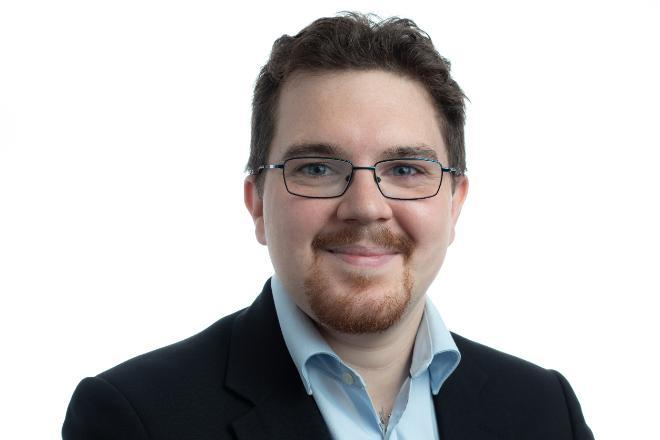
Employment
Post-doctoral researcher in medical research and machine learning engineer in industry.
Position secured before graduation.
What do you like and dislike about your current role?
I like everything!
How did your doctorate lead to your current post?
Gave me time to study machine learning.
What career progression tips would you offer to researchers if they want to follow a similar path to your own?
Know how to market yourself. You have to do a lot yourself.
Transitioning to Employment
What was most helpful to you in managing your transition on from your PhD?
Previous knowledge.
What did you find most challenging in making the transition?
Getting over the stigma that a PhD is just an education not work experience.
The PhD
What advice would you give in terms of making the most of the PhD experience?
Travel, public engagement, learn to present in public and time for side interests.
Kirsty Annand, School of Physics and Astronomy
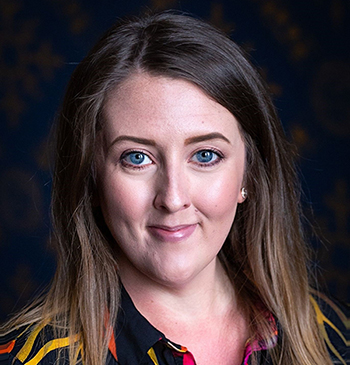
Twitter: @AnnandKirsty
Employment
External Engagement Manager for the Photonic Integration and Advanced Data Storage Centre for Doctoral Training (CDT).
About 18 months since graduation.
What does your role entail?
This CDT will train over 100 engineers and scientists over the next 9 years to tackle the challenges created by the increasing quantities of data generated by today’s society. This is a joint initiative between the University of Glasgow, Queen’s University Belfast, and The Irish Photonic Integration Centre in Cork and Dublin, so whilst I am based at UofG, I get to spend time in all four locations!
What do you like and dislike about your current role?
Pros: My role is so varied, and each day is never the same! One day, I might be engaging with stakeholders in order to devise and develop partnerships which meet the demands of industry today, the next I might be getting stuck in with some science outreach for primary school children.
A large part of my job is networking and developing strong and trusting relationships, so a lot of the soft skills I honed during my time as a researcher have really stood me in good stead in my current role. I also love that I get to learn about the fascinating research being undertaken at all of our partner institutions, whilst developing close contacts with our industrial partners.
I’m passionate about enthusing and educating young people about photonics and championing young women and girls in this field, so coordinating delivery of our outreach activity also suits me perfectly. The direct impact I can have on developing and championing the future photonics workforce is really exciting.
Cons: I’m very lucky to have secured a long-term position in my current role, as this has never been the case in previous academic employment. As is the nature of Higher Education, it is not unusual to be employed on a fixed term basis. This uncertainty can be quite challenging to manage and is definitely an inherent ‘con’ when working in academia.
How did your doctorate lead to your current post?
Upon approaching the end of my PhD, I knew that although I still enjoyed learning about science, I was definitely ready to move out of my academic bubble. I’ve always been passionate about communicating research to broad audiences and was keen to build my network and gain some industry insights into business.
After some time as a Post-doctoral Researcher, I spent 12 months as a Knowledge Exchange Associate at the University of Glasgow. This was an excellent first step out of academia for me, which involved fostering knowledge exchange across research, industry, policy, practice and the public, in order to create impact. It gave me a great understanding of what industry were looking for in potential new talent and products, and when I came across the job listing for my current post, I knew it fitted my skillset perfectly.
What career progression tips would you offer to researchers if they want to follow a similar path to your own?
Network network network. Get business cards, a LinkedIn, a professional Twitter and use them.
Transitioning to Employment
What was most helpful to you in managing your transition on from your PhD?
You do not need to match all of the essential skills on a job description. I cannot stress that strongly enough! Know your strengths and apply to everything and anything that sounds interesting.
What did you find most challenging in making the transition?
I found it so challenging to find clear headspace to pull myself away from writing my thesis to complete job applications without getting distracted or disheartened. It is a precarious time, often fuelled with impending lack of funding, and an ebb in confidence.
I think it is so important to schedule real time away from your usual writing place, to focus and commit to the job search. Ask people who really know you to advise on where they think your strengths lie, and reach out to as many contacts, companies, and colleagues as you can. You’d be surprised how many people will happily meet for a coffee to give you some honest advice.
The PhD
What advice would you give in terms of making the most of the PhD experience?
The number one best piece of advice I can give to any PhD student is to say ‘YES’ to as many opportunities as you can, especially in your first year. It is so important to build your network outside of your research area, and getting stuck in to science communication, undertaking an internship, or writing about science for a general audience is so important to develop you as a person, and keep your research fresh.
What do you know now that you wish you had known then?
Don’t compare yourself with others. All PhD programmes and paths are different. You just need to do what works for you.
Konstantina Loumou, School of Physics and Astronomy
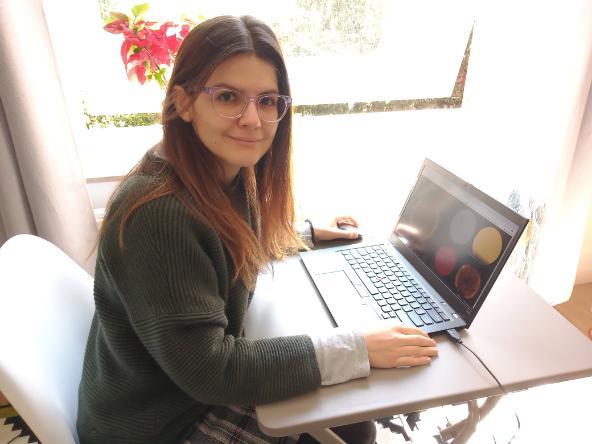
Employment
Providing services to the European Space Agency and other partners of the Royal Observatory of Belgium.
Position secured before graduation.
What does your role entail?
My duties include space weather forecasting and product support for the Royal Observatory of Belgium. For the forecasting, I am looking at solar images and particle data to understand the current conditions are on the Sun’s surface atmosphere and if, how and when they will impact Earth. For the product support, I monitor products that the observatory has created, fix bugs spotted and drive developments to established pipelines. Finally, I perform project management for specific products of the observatory’s partners.
What do you like and dislike about your current role?
In my current role, I am required to use all the knowledge and skills I have acquired through my studies and apply them in a non-academic role, for the first time. I find this change exciting and I feel that I am growing as a professional this time, compared to as a student or a researcher. I have been doing my work for about a year now and I have enjoyed every aspect of it so far.
How did your doctorate lead to your current post?
My PhD gave me the theoretical and technical background needed to get this position. My thesis was not particularly on forecasting but was exploring the physics associated with it. In non-academic interviews employers focussed mainly on the project and time management as well as soft skills I acquired from it, rather than just the project itself, although there were always quite a few technical questions. However, it was my whole career trajectory, the fact that I have worked with various teams in different projects that attracted my current employer. The PhD additionally gave me the chance to travel, meet a variety of scientists and service providers in conferences, collaborate with a number of scientists and make a more informed decision on what I want to do next. Furthermore, two very important benefits from doing a PhD in UofG were the discussions with the career advisor and the student jobs I was able to take up when my funding was over. Only through putting myself into jobs I was in 10 years ago and discussing about my achievements I realised that I developed skills and was approaching work in a thoroughly more organised way.
What career progression tips would you offer to researchers if they want to follow a similar path to your own?
Possibly think were you want to be in 5-10 years’ time and which job will lead you there. Start applying before finishing the PhD, it takes time to find something.
Transitioning to Employment
What was most helpful to you in managing your transition on from your PhD?
The challenges of the job is to have some of the technical background, learn fast, be timely and collaborate effectively. Since this role is a natural next step to take after my PhD, everything, from background knowledge to soft and hard skills, networking, prior advice given, have been extremely useful.
What did you find most challenging in making the transition?
Applying for jobs while writing up and having a part-time job. I was very tired.
The PhD
What advice would you give in terms of making the most of the PhD experience?
I enjoyed the college courses and felt very supported by the staff and everything offered to me. Some others felt the courses as an extra hassle. Both views are valid, but try them first, they are there for you and maybe you will find them helpful.
What do you know now that you wish you had known then?
I was applying way too early! Academic jobs need from a few months to a year of applying in advance but non-academic jobs need you to start in 3-6 months.
Hannah Gilman, School of Psychology
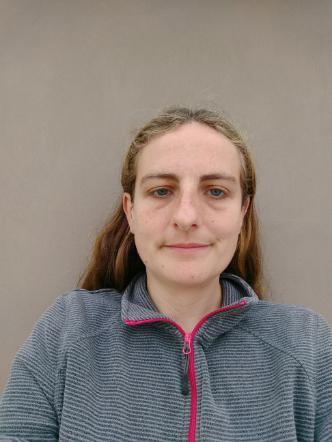
Employment
University of Glasgow, Subject Coordinator (Short Courses) and The Open University, Associate Lecturer
Position secured before graduation.
What does your role entail?
Involved in managing courses for Short Courses.
What do you like and dislike about your current role?
My roles are both part time (dislike) but allow flexible working (like).
How did your doctorate lead to your current post?
Teaching during my PhD gave me the experience I needed and helped demonstrate I wanted to follow a teaching and not research pathway
What career progression tips would you offer to researchers if they want to follow a similar path to your own?
Get as much teaching experience as you can during your PhD.
Transitioning to Employment
What was most helpful to you in managing your transition on from your PhD?
My interest in teaching led to getting enough experience during my PhD to secure a teaching job through contacts I'd made.
What did you find most challenging in making the transition?
Finishing the PhD was most challenging. It is difficult to find the "write up year" and difficult to be trying to apply to jobs whilst finishing write up - most employers are not interested in employing you until after the thesis is submitted
The PhD
What advice would you give in terms of making the most of the PhD experience?
The opportunity to get involved with teaching as this gave me the skills to pursue a non-research career track.
What do you know now that you wish you had known then?
It's ok not to finish your PhD.

